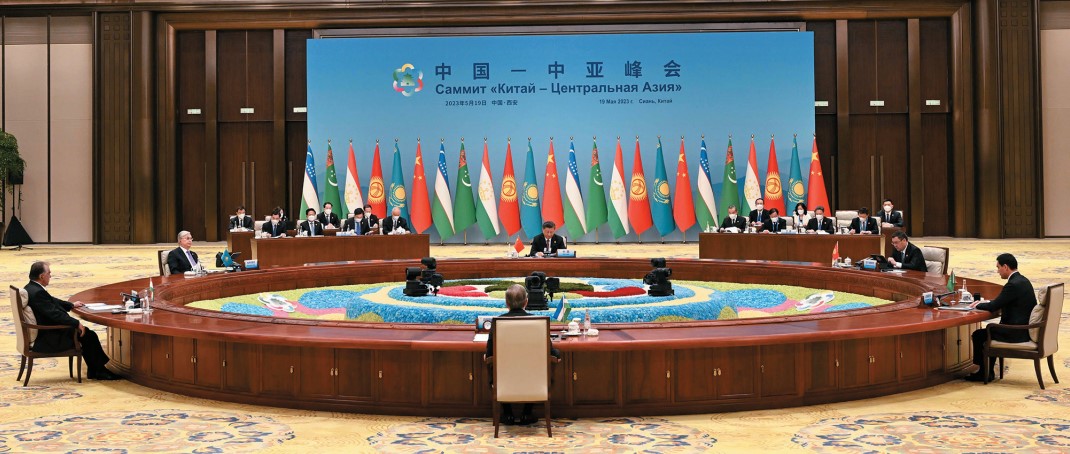Projects
China's March. The Celestial Empire Expands Presence in Kazakhstan's Oil and Gas Sector
Kazakhstan's President Kassym-Jomart Tokayev returned from Xi'an with a substantial package of signed bilateral agreements that will bolster Chinese presence in the country's oil and gas industry. The state visit took place from May 16th to 20th and was aligned with the Kazakhstani leader's participation in the Central Asia-China summit.

Dynamic Development
In recent years, China's cooperation with Central Asian countries in the economic sphere has been quite dynamic. The trade turnover between the People's Republic of China (PRC) and the five Central Asian states increased by approximately 40% year-on-year in 2022, reaching a record high of $70.2 bln USD. In the first two months of the current year, the volume of trade between China and Central Asian countries increased by 22% year-on-year. China's investment volume in Central Asia has reached $40 bln USD. Consequently, the PRC has become one of the major trade and investment partners of the Central Asian "Five."
The Central Asia-China summit provided a boost for accelerated regional integration with China and showcased the strengthening of its role in the region, particularly considering the tectonic geopolitical shifts that began with the war in Ukraine. Decisions were made at the summit to actively develop automobile and railway communication with Western China, leading to the transit corridor Western China-Western Europe, bypassing Russia. Thus, all five Central Asian countries will gain not only a shorter, but also a Russia-independent transit route to Europe.
During the summit, dozens of contracts were inked between Chinese and Kazakh companies totaling $22 bln USD, with memoranda signed that strengthen the sturdy foundation of China-Kazakhstan friendship. Kazakhstan supported the idea of establishing an "Asia-China" secretariat. At the proposal of President Tokayev, the next summit in 2025 will be held in Kazakhstan.
Moving forward, such conferences will be held regularly, once every two years. An executive body-the secretariat-will operate on a permanent basis in Beijing. Transport, trade and economic ties, investment and industrial cooperation, agriculture, energy, customs cooperation, and cultural-humanitarian exchanges are identified as priority areas of work. During the bilateral meeting, the leaders of the PRC, Xi Jinping, and Kazakhstan's Kassym-Jomart Tokayev agreed to increase the volume of trade between the countries to $40 bln USD in the near future. All interested parties, both Chinese and other companies, will be provided with logistical infrastructure, which will be rapidly developed. New customs terminals and complexes will be built at the border, which will significantly reduce the delivery times of products.
The head of Kazakhstan proposed an initiative to create and implement a common digital trading platform C5+China. An agreement was reached that Kazakhstani companies will continue to assist in the construction of the Belt and Road project. There are plans to open another railway crossing between the countries soon. In addition, Kazakhstan will continue to ramp up the capabilities of the Trans-Caspian transport route, which is of paramount importance to the world. New technologies will be implemented to manage it. A separate block of agreements was signed in the oil and gas sector.
Transportation
Key to the visit was the Agreement signed on May 18th between NC KazMunayGas and China National Petroleum Corporation (CNPC) for the expansion of strategic cooperation in the oil and gas industry. It envisages deepening cooperation in the fields of geological exploration and oil refining, studying opportunities to increase transportation volumes through the Kazakhstan-China oil pipeline, and developing the personnel potential of the companies.
"Over many years of joint work, strong and trusting relationships have been formed between KazMunayGas and CNPC, and important oil and gas projects for Kazakhstan are being jointly implemented. The agreement signed today is the next step in strengthening the partnership between the companies," commented Magzum Mirzagaliyev, the Chairman of the Board of KMG.
Later, while meeting with journalists, he clarified that the talk was, in particular, about increasing oil exports via the Kazakhstan-China pipeline to 20 mln tons per year (including the transit of Russian oil amounting to 10 mln tons). Investments in the modernization of the pipeline are planned at $200 mln USD. These funds will be allocated towards expanding the Atyrau-Kenkiyak-Kumkol-Atasu pipeline segment to 20 mln tons per year, including the construction of new pumping stations.



